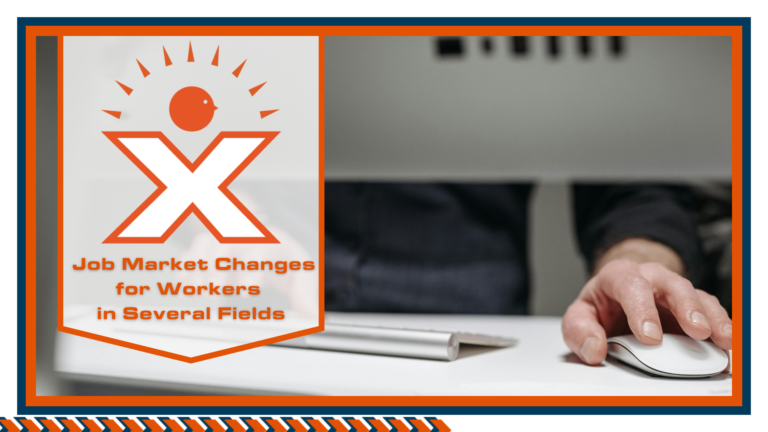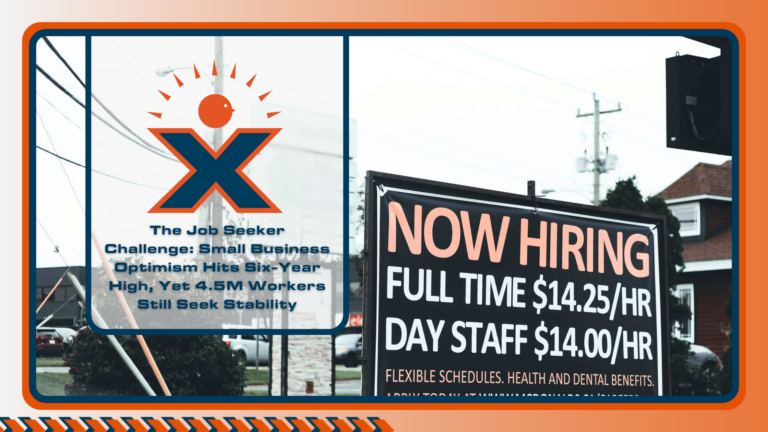Written By: Beth Braccio Hering
Want to speak volumes to a hiring manager without saying a word? Be self aware and avoid making common body language mistakes that can send the wrong message. Your body language is always communicating something during an interview, and it may not be positive.
“There are so many ways body language can either make you sink or soar during an interview,” said Kathryn M. Partan, principal at Partan Communications LLC. “The main idea here is to release your energy, instead of keeping it trapped inside. When released, you’ll look and feel confident. When trapped, anxiety and nerves abound!”
Brie Reynolds, FlexJobs’ senior career specialist and career coach added this: “Your body language is one piece of your overall interview performance, and sometimes it can have an out-sized impact. As humans, we’re naturally conditioned to pay attention to visuals. If you make the most of your body language during your job interview, it can help you leave a great impression with a potential employer.”
Below we’re going over 12 body language mistakes you should ditch if you want to put your best foot forward during the job interview.
12 Body Language Mistakes to Avoid During Interviews
1. Slumping
Don’t give the impression that you’d like to curl up into a ball and be anywhere else! Instead, sit as if there’s a string tied from the top of your head to the ceiling. (This trick also helps if you have a tendency to lean back in the chair, which could be viewed as not taking the conversation seriously.)
Similarly, watch your posture when standing. Push your shoulders back, keep your chin up, and stand with your feet slightly apart. Studies show taking on this “Superman” pose actually changes the hormones in your brain after only two minutes, leaving you feeling stronger and less stressed.
2. Wandering Eyes
Do your eyes dart around the room while listening and speaking? Are you guilty of looking at the ceiling or floor rather than at people? Such actions make you appear apprehensive and distracted.
“Make direct eye contact with your interviewer, both while listening and speaking,” Partan said. “Every word you say should land on your interviewer’s eyes. You develop immediate rapport by making direct eye contact. The interviewer will see you as a confident and competent candidate. Practice this by sharing a story with a friend, without breaking eye contact.”
3. Fiddling with Objects
An interviewer who witnesses you playing with your jewelry, picking at your fingernails, or twirling your hair may assume you’re bored or impatient. Luckily, this is a body language mistake with an easy remedy. Simply eliminate the source, whether that means leaving bracelets at home or pulling back hair. Another trick is to press the fingertips of your hands together to form a church steeple. You’ll display confidence while keeping your nervous digits under control.
4. Clenching
Hang tight to a chair’s arm rest or glue your hands to the desk’s edge and run the risk of looking like a roller-coaster rider having second thoughts. Such white-knuckle grips also can lead your pent up energy to come out in other undesirable forms, such as toe tapping or chair swiveling.
A better choice is to use your hands to gesture while you speak to make answers more engaging (although see point number seven to not overdo it). As Partan noted, “This makes you look open and interested and allows you to use your energy in a positive way.”
5. Failing to Smile
A simple but often overlooked body language mistake is simply not looking happy to be there. Interviewers may assume you aren’t. Instantly up your approachability and trustworthiness by smiling. People are naturally drawn to a happy face, and the feel-good chemicals smiling releases into the body will help you stay calm and upbeat.
“Smiling tells an employer so many things about you, but when we’re nervous, we naturally stop smiling. Practice answering interview questions while reminding yourself to smile. If you don’t smile sometimes during a job interview, it may wrongfully tell them you’re not a positive person or you’re just not excited about the role or the company,” said Reynolds.
6. Defensive or Aggressive Body Posture
Crossing your arms across your chest. Leaning forward a bit too assertively. Invading the interviewer’s personal space (aside from a handshake, no touching during an in-person interview!). What characteristics do these postures share? They all risk coming off as being too, shall we say, “in your face.”
Probably the last thing you want in an interview is to indicate that you’re one to constantly question or challenge everything, at every turn. Turn off the aggressive body language cues and, instead, rest your hands in your lap, on the arms of the chair, or anywhere that conveys a sense of calmness and an even-tempered disposition.
7. Wild Hand or Arm Movements
You may be super-excited about the prospective job, but wild gesticulations with your hands or arms can seem, well, just a wee bit whacky. Even though you’re enthusiastic, this can still be seen as a body language mistake. Settle down and study up on when and how to employ your hands during an interview. Used sparingly and with precision, hand gestures can be a powerful way to make a point, or even engage your interviewer in a moment of shared humor, frustration, or camaraderie related specifically to the discussion.
“The last thing you want to do is distract an employer away from your answers, but using big gestures or talking a lot with your hands will do just that. Some movements and gestures are great and can add to your overall interview performance. But try not to go overboard or the employer may stop listening to your words because they’re too distracted by your movements,” said Reynolds.
8. Shrugging
Shrugging isn’t a good look for any job seeker, since it means that you might be indifferent or unhappy with what your interviewer is saying. But shrugging just one shoulder can also indicate that you’re lying, so be careful not to shrug—at all.
9. Stiffness
Of course you’re nervous…it’s a job interview! Many people tend to get a little stiff when nerves are getting the best of them. Of all the possible body language mistakes, this one is the least offensive, since being stiff automatically equates with nervousness, which is something that hiring managers expect.
But being too stiff can make you appear uncomfortable or unfriendly, so try to loosen up a little before your interview. Smiling as you’re talking is a great way to feel more relaxed!
10. Leaning Backwards
You might be thinking of an answer to a question, or you might be trying to make some extra space between you and your interviewer. But leaning backwards is an indicator of someone who is not engaged in the current conversation. So try to lean forward a bit to show your enthusiasm without encroaching on the other person’s space.
11. Sitting Directly in Front of Your Interviewer
If you’re doing a phone or video interview, you don’t have to worry about where to sit. But when you enter an office for an in-person interview—and there are three chairs to choose from—you might not always know where to sit. A rule of thumb is to sit in the chair that’s on a 45-degree angle from your interviewer’s chair. Being on an angle is more collegial—and less combative—and can help make you both feel more comfortable.
12. Touching Your Face
Sure, your nose might be itchy or you might feel an eyelash in your eye, but you should try to avoid touching your face, since that can make you look like you’re hiding something.
Body language mistakes can break a job interview. So make sure you study up on these tips so you can ace your next in-person interview with positive body language that shows you’re the right candidate for the position! Or, if you’re interviewing online, there are still many body language cues to consider for video interviews.
Recommended For You:
- How To Calm Your Nerves Before a Job Interview
- After the Interview: 3 Tips to the Professional Follow Up
- How to Craft Winning Responses for Your Next Interview
Who is NEXTAFF? We are locally owned and operated staffing offices devoted to our communities, clients, and candidates throughout the United States. For more job tips and ideas, contact us. We are always hiring, so if you or someone you know is looking for work, check out our job board below and apply today! We are able to service all your staffing agency needs with local staffing offices in Sacramento-CA, Sonoma County-CA, Des Moines-IA, Raleigh-NC, Shawnee-KS, Topeka-KS, Detroit-MI, Kansas City-MO, Gulf Coast-MS, Phoenix-AZ, Miami-FL, Harrisburg-PA, Jackson-TN, Beaverton-OR, Pittsburgh-PA, and North Dallas-TX.
{{cta(‘d32846d5-587b-4c3e-b397-d4da97690e8a’)}}











